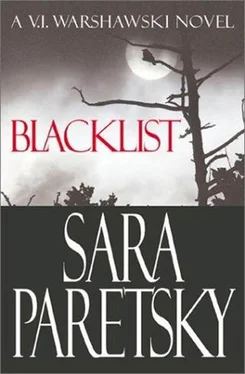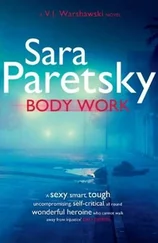“Oh, please, Gran, I couldn’t stand those Jablon kids long enough to get a key from them, they were such nounous with their-“
“Such what?” her grandmother demanded.
“Sorry,” Catherine mumbled. “We use it at school. Nouveaux-nouveaux riches, you know”
“I do now,” Renee said dryly. “Contempt for those born in different circumstances than your own is the easiest way to stop thinking.”
“I know, I know, but if you’d-hey, Gran, someone has been herelook at all this stuff laid out, like they’d been having a picnic or something, except using all this old broken china.”
Renee swept a circle of light outward toward the china shards Catherine had seen. These were from my first lot, at the end of the pond closest to us. I watched her feet march over. Catherine followed.
“Was the sheriff here, do you think? Was he dredging the pond for clues?”
“I don’t know,” Renee said. “Rick Salvi doesn’t seem that interested in the situation. Maybe it was your detective, returning to the scene of the crime. These look like bits of Geraldine Graham’s mother’s Coalport. She
had place settings for a hundred, all in this blue-and-gilt. They must have fallen into the water during alfresco evenings.”
“People got drunk and threw china into the pond?”
“We weren’t quite as wild as that, darling. I shall have to call Rick and see if he sent a crew to the pond. Recently it would be, too, there are still wet patches under these pieces. You didn’t see anyone? I thought I heardbut I didn’t see-” The flashlight swept around again.
“Here’s something else.” Catherine had moved to the far end of the pond, her own flashlight cutting a narrow cone along the pond’s edge. If I’d left wet footprints on the walk she was obliterating them. “Oh, it’s just more grubby old bits of something. Not more china from Mrs. Graham’s drunken orgies, it’s all dark and nasty-hey, if you look close, it looks like a mask, you know, like the one Grample has in his study. Didn’t some friend in the arts or something give that to him? It looks like they gave one to the Grahams who didn’t like it quite as much.”
Renee’s feet crunched on the broken brick as she strode over to her granddaughter’s side. “I think you’re right. We’ll have to clean it up: most of it’s here, it’s just the top corner around the left eye that’s broken off. I must say, this explains a lot.”
“About what, Gran?”
“Life, Trina, although it is always an inexplicable mystery. Let’s go home now” As their footsteps crunched out of the garden, she added, “What did you see here Sunday night?”
But Catherine wasn’t to be tricked. Their voices were fading, but I heard her say, “Since I wasn’t here, I couldn’t possibly have seen anything.”
Scaling the North Face
I slept three hours at the nearest motel. When the alarm went off at midnight, I lay blinking at the unfamiliar surroundings. Why had I set the alarm when what I really needed was eight-no, make that ten-hours in a warm bed? It was too cold, I was too old, for nighttime derring-do. But when I rolled over and wriggled back under the blankets, I couldn’t get back to sleep.
Catherine had a key to Larchmont Hall. She was shielding someone inside the house. And Renee Bayard was too shrewd not to understand both these things. Renee would have the DuPage sheriff out there first thing in the morning and my chance of finding-Marcus Whitby’s murderer, say, or a possible witness to the murder-would evaporate.
“As if it’s your business.” I could hear Catherine Bayard say that, her narrow face pinched up in scorn, but I got out of bed anyway.
I put my jeans back on, but my socks and sweatshirt were wet and stank of rotted vegetation. The silk blouse I’d worn to see Julius Arnoff was in my trunk. I didn’t want to wear it for strenuous work, but one thing the suburbs have in abundance is all-night shopping. The motel itself was across the street from a twenty-four-hour behemoth. I put on my blouse and suit jacket and stuck the pocket organizer into my day pack before crossing the highway-I didn’t want to leave my precious booty alone for a minute.
Before falling into the bed, I’d tried to pry the organizer open, but dirt and wet weeds clogged it shut. I didn’t force it-if this was Marc Whitby’s, I didn’t want to destroy any notes or documents zipped inside. I’d get it to the forensic lab I use for this kind of problem.
The ring I rinsed off under the bathroom tap. A jeweler would have to clean it up properly, but as I’d thought, it was an expensive, garish piece of jewelry. A kind of beehive of stones was built up from a gold band-diamond and emerald chips banked around four good-sized rocks. A couple of the small chips were missing, but what remained could probably pay Mr. Contreras’s and my taxes for a couple of years.
Had it been Geraldine Graham’s? Her mother’s? I pictured a teenage Darraugh throwing his grandmother’s ring in the pond after they’d fought about his father-the father for whom he defiantly named his own son. Or perhaps Geraldine herself had thrown it away, out of disgust with her marriage. Or perhaps I was being melodramatic-maybe she or her mother, or even some guest, had lost it during one of those al fresco dinners Renee Bayard mentioned-the owner would be thrilled to see it again.
My fingers were swollen from the cold water, but at their normal shape the ring would have slid down over the knuckle. I held out my hand to study the ring in the bathroom mirror. Wedged against my knuckle, with my fingers showing a spider network of cuts, the piece looked even more grotesque. Definitely the possession of someone with more money than taste-although I guess a claim to superior taste is the weak comfort of the poor. I stuffed the ring into my jeans and went out to buy skulking clothes.
In the superstore across the road, I found aspirin, orange juice, socks, fresh batteries for the work lamp, work gloves with rubber palms and a hooded navy sweatshirt-all for twentythree dollars. I had an uneasy feeling that slaves in China or Burma had made these items. They never say that on the label: made for Megatherium Superstores by slave labor so you can have it cheap, but a sweatshirt, gloves and so on for twentythree dollars ought to tip you off. Ought to tip me off. I could have driven all the way home for gloves, sweatshirt, and so on, not to mention my gun, but I was an American-fast, cheap and easy, was my motto.
Back in the motel, I drank half the orange juice with two aspirins: that would do me as much good as another six hours in bed. The rest I put in
my day pack along with the small knife and the headlamp. I left a “Do Not Disturb” sign on the door in case I wanted to use the room again, but I put all my stuff in the car: if my luck-and stamina-held, I wanted to drive straight home when I finished.
I was in one of the peaks of alertness that you sometimes reach when you’re basically exhausted. At the entrance to Coverdale Lane, I pulled the Mustang behind a bush. I wanted to approach Larchmont on foot-1 didn’t want the noise of my car to alert anyone who might be hanging around.
Five nights ago the trip had spooked me; the road had seemed endless, the night animals major menaces. Now I knew the area well enough that I jogged along. I was wearing my diver’s headlamp, but the moon outlined the road in enough ghostly light that I didn’t have to switch it on.
Movement loosened my muscles, helping the aspirin kick in. I stretched my arms. Some muscle between my shoulder blades gave me a stab of pain sharp enough that I winced. I hoped it was a muscle I wasn’t going to want again tonight.
Читать дальше












